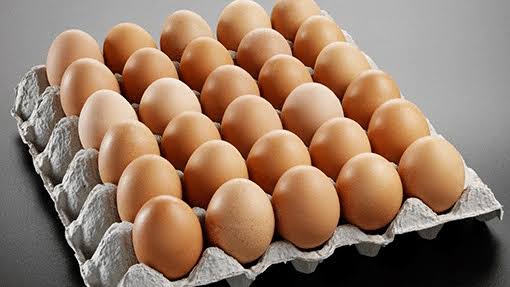Crate of Eggs could hit N10,000 soon, Poultry Association of Nigeria warns
The price of a crate of eggs, which currently ranges between N5,500 and N6,000, may soon surge to N10,000, according to a warning from the Poultry Association of Nigeria (PAN).
Speaking at a press conference in Abuja to mark World Egg Day, Musa Hakeem, Secretary of PAN in the Federal Capital Territory (FCT), called on the government to declare a state of emergency in the egg production sector.
He stressed that without immediate intervention, the rising cost of eggs would worsen Nigeria’s already declining protein consumption.
Hakeem attributed the potential price hike to skyrocketing transportation costs following the removal of fuel subsidies, as well as increasing feed prices driven by feed millers.
“The sharp rise in production costs could push the price of a crate of eggs to N10,000, but we have kept it at N5,500 out of consideration for consumers,” he said.
He also expressed frustration over the lack of government support, noting that the last time poultry farmers received grain assistance was three years ago.
Hakeem urged stronger collaboration between the government and poultry farmers, emphasizing that PAN holds detailed data on farmers that could help facilitate more targeted interventions.
In addition, agro-dealer Jude Arikogu raised concerns about the quality and weight of poultry feed, noting that some 25kg bags weigh less than stated, further burdening farmers already struggling with rising operational costs.
As the egg production sector braces for a potential price surge, farmers and stakeholders are calling for urgent government action to stabilize the industry.
Soaring Food Prices: Impact of Inflation on Nigeria’s Staple Goods
Nigeria is currently experiencing one of its worst periods of inflation in decades, with prices of many essential commodities skyrocketing.
Key factors driving this inflation include the recent hike in fuel prices and the scarcity of foreign exchange.
Price increases in staple foods such as garri, yam, and other key items have pushed Nigeria’s food inflation to alarming levels in 2024.
A report by the National Bureau of Statistics revealed that food inflation has risen significantly compared to the rates recorded in 2023.
Nigeria’s agricultural sector is facing unprecedented challenges. A convergence of natural and human-induced disasters — including flooding, drought, banditry, and the rise in petroleum prices — threatens to severely undermine the country’s food security.
While each of these factors has its own impact, their simultaneous occurrence presents a compounded risk that could lead to widespread food shortages, increased poverty, and social instability.







